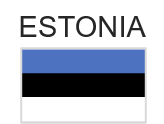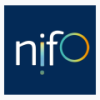The table below aims at gathering the administrative and governmental bodies of Estonia, which are responsible for digital public administration policies and interoperability policies.

National
The Ministry of Economic Affairs and Communications holds political responsibility for the development of the State information policy. In particular, the Ministry elaborates the State economic policy and economic development plans, while also drafting the respective legislation bills in a variety of fields, including informatics, development of State information systems, research and development, and innovation.
With regard to political coordination, management and financing, interoperability initiatives are also coordinated by the Ministry of Economic Affairs and Communications. In particular, the Ministry, being responsible for developing the State Information System, designs the interoperability framework and prepares the related documents.
|
Andres Sutt Minister for Entrepreneurship and Information Technology
Source: https://www.mkm.ee/en/contact |
|
Kristo Vaher Government Chief Technology Officer
Source: http://www.mkm.ee/en |
|
Ott Velsberg Government Chief Data Officer
Source: http://www.mkm.ee/en |
|
Allan Lepik Chief Operations Officer, Deputy CIO
Source: http://www.mkm.ee/en |
|
Indrek Õnnik Global Affairs Director
Source: http://www.mkm.ee/en |

|
Raul Rikk National Cyber Security Director
Source: http://www.mkm.ee/en |

|
Kristi Kivilo ICT Skills Coordination Director
Source: http://www.mkm.ee/en |
The Government Chief Information Officer (CIO) Office (formerly known as the State Information System Department) of the Ministry of Economic Affairs and Communications plays a major role in the elaboration of the Estonian information society policy. The Government CIO Office develops information society-related activities in the field of IT and prepares draft legislation in the relevant areas. More in detail, the Government CIO Office’s strategic tasks include the coordination of State IT-policy actions and development plans in the field of State administrative information systems, such as State IT budgets, IT legislation, IT projects, IT audits, standardisation, IT procurement procedures and international cooperation in the field of State information systems.
|
Siim Sikkut Deputy Secretary General for IT and Telecom, Government Chief Information Officer (CIO)
Source: http://www.mkm.ee/en |
The Estonian Association of Information Technology and Telecommunications (ITL) is a non-profit organisation aiming to group Estonian IT and telecommunications companies, to promote their cooperation in the development of Estonia towards an information society, to represent and protect the interests of its member companies and to express their common positions. The main activities of the association include the popularisation of ICT, the promotion of vocational education and amendment of legislation.
The eEstonia Council (formerly known as the Estonian Informatics Council) was created in 2014 and is a government committee directing the development of the digital society and eGovernance in Estonia. In addition to playing a coordination and policy formulation role, the eEstonia Council, as an expert committee, also advises the government on ICT matters in a horizontal manner.
The Council is composed of five ICT sector representatives and experts as well as three ministers, and is chaired by the Prime Minister. Other government institutions and experts are involved upon need.
On 1 June 2011, the Estonian Informatics Centre was restructured into the Estonian Information System Authority (RIA). Its mission is to coordinate the development and management information system so that Estonian citizens are served in the best possible way. In particular, RIA coordinates all public key infrastructures related to the operation of ICT and IT, like the State portal, the middleware system X-tee, the government backbone network EEBone, RIHA and the Electronic Document Exchange Centre (DVK). Moreover, the Authority is also responsible for the coordination of the State information system development projects, and the preparation of and participation in international projects. RIA also monitors the legislation process concerning the management information system requirements. Finally, RIA is also the main body responsible for interoperability activities in Estonia.
|
Margus Noormaa Director General of the Estonian Information System Authority (RIA)
Source: http://www.ria.ee/ |
The Computer Emergency Response Team of Estonia (CERT Estonia), established in 2006, is an organisation responsible for the management of security incidents in ‘.ee’ computer networks. More in detail, CERT Estonia deals with security incidents that occur in Estonian networks or incidents that have been notified by citizens or institutions either in Estonia or abroad. In this context, CERT Estonia assists Estonian internet users in the implementation of preventive measures to reduce possible damage from security incidents and to respond to potential security threats.
The Information Technology Foundation for Education (HITSA) (formerly Estonian Information Technology Foundation or EITF) is a non-profit association established by the Republic of Estonia, the University of Tartu, the Tallinn University of Technology, Eesti Telekom and the ITL.
The role of HITSA is to ensure that graduates at all levels of education have obtained the digital skills necessary for economic and societal development, and that the possibilities offered by ICT are skilfully used in teaching and learning, helping to improve the quality of learning and teaching at all levels of education.
The eGovernance Academy is a non-governmental, non-profit organisation aiming to promote the use of ICT in the work of government bodies and in democratic practices. More in detail, the Academy’s mission is to train and advise leaders and stakeholders in using ICT, to increase government efficiency and to improve democratic processes with the aim of building open information societies.
The Management System of the State Information System (Riigi Infosüsteemi Halduse Infosüsteem, RIHA) is the Estonian catalogue of public sector information systems, serving as national registry of systems, components, services, data models, semantic assets, etc. RIHA facilitates planning and operation activities related to information systems, with the main goal of guaranteeing a transparent and optimal balance, and an efficient management of public sector information systems. In addition, the RIHA supports the interoperability of databases, the life-cycle management of information systems and the reuse of data by providing complete and up-to-date metadata relating to the Estonian public sector information systems. The registration of public databases and information systems on RIHA is mandatory and enforced by law.
The Association of Estonian Cities and Rural Municipalities (AECM) is a voluntary union established to represent the common interests of cities and rural municipalities, and organize cooperation among them. The main goal of the AECM is to ensure the development of local governments through joint activities. At present, 74 municipalities out of 79 are members of the Association. Local governments belonging to the Association cover 99% of the population of Estonia, with all Estonian regions being represented. The AECM is funded through membership fees, the amount of which depends on the revenues of each member.

